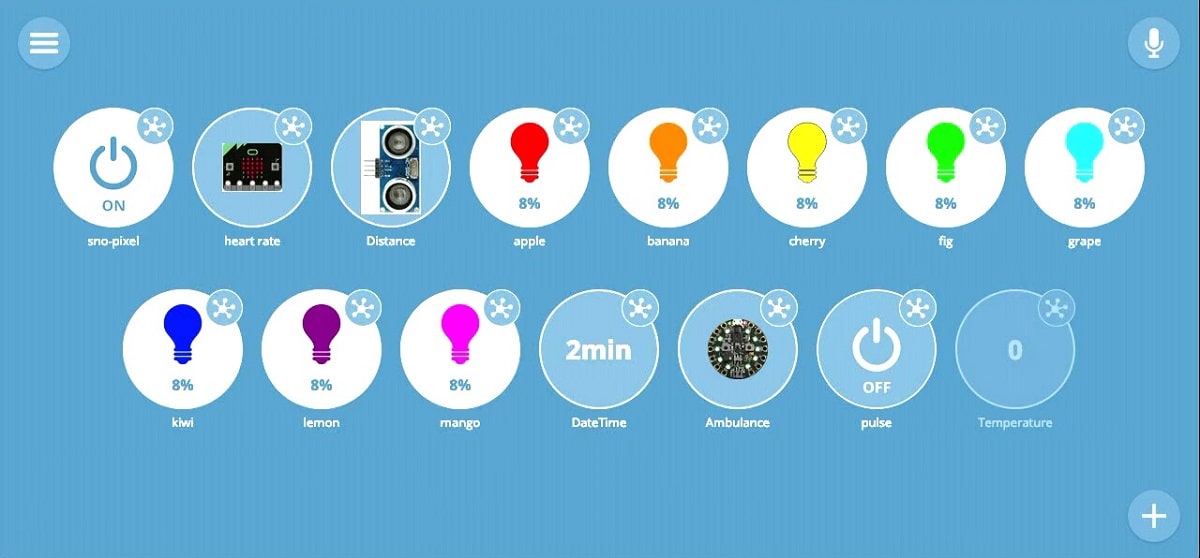
The developers of Mozilla who are in charge of developing WebThings Gateway have announced the release of the new version of "WebThings Gateway 0.11" which comes with a series of improvements focused on the interface.
For those who are unaware of WebThings Gateway they should know that is a universal layer for organizing access to various categories of IoT consumers and devices, hiding the characteristics of each platform and without requiring the use of specific applications for each manufacturer. The project code It is written in JavaScript using the Node.js server platform.
WebThings Framework provides a set of replaceable components to create IoT devices that can interact directly using the Web Things API. Such devices can be automatically discovered by WebThings-based gateways or client software (using mDNS) for subsequent monitoring and control via the Web.
In addition to that you can use the ZigBee and ZWave protocols, WiFi or the direct connection through GPIO to interact with the IoT platforms. Firmware Gateway is ready for various Raspberry Pi models, Debian packages are also available.
What's new in WebThings Gateway 0.11?
With the release of this new version of WebThings Gateway 0.11, it is mentioned that the interface of the platform received improvements for non-English speaking users as translations for 24 languages added.
Also, the developers comment that Support for the platforms for which the installation packages are distributed has been expanded.
Well, in addition to the classic and well-known images generated for Raspberry Pi and Docker, now packages were formed for their installation in Debian 10, Raspbian, Ubuntu 18.04, 19.04, 19.10 and Fedora 30/31 and also packages for Arch Linux that can be obtained from the AUR repository. And without counting the derivatives of these that it benefits.
On the other hand it is mentioned that an event registration system has been stabilized which collects statistics on the operation of all IoT devices and sensors in the home network and which allows to evaluate their activity in the form of visual graphs.
For example, you can find out how many times the doors were opened and closed during your absence, how the temperature in the house changed, how much energy was consumed by devices connected to smart plugs, when a motion detector was activated, etc. Charts can be constructed in the context of hours, days, and weeks and scrolled on a time scale;
Regarding the experimental functionality of the voice assistant that allows to recognize and execute voice commands has been declared insolvent and was eliminated, with which for the next version the voice control API will also be eliminated. Instead of the built-in voice assistant, it is proposed to use plugins with similar functionality which can be found in the Settings - Plugins section.
Of the other changes that stand out in the announcement of this new version:
- Added an option to disable automatic delivery of OTA updates for the build for the Raspberry Pi.
- For additions, the ability to access language and localization settings is provided.
- Added the ability to access the web interface from other systems on the local network without encryption (using "http: //" instead of "https: //").
- The reliability and stability of the PWA (Progressive Web App) application is increased, allowing you to organize your work with the web application as a standalone program.
How to get WebThings Gateway?
For those who are interested in WebThings Gateway, they can get it in a very simple way. They just need to download the firmware provided to the SD card of your Raspberry Pi.
To save the image you can use Etcher, which is a multiplatform tool.
Likewise, it will be in charge of finding the existing IoT devices which will give you the option of being able to configure the parameters for external access and to be able to add the most popular devices to the screen.
Are there packages ready for OpenWrt? Where I get them?
No, only for Raspberry, Linux or Docker
So why did you write that there are packages available for OpenWrt?
There was an experimental package based on compilation for Raspberry. https://github.com/openwrt/packages/tree/master/lang/node-mozilla-iot-gateway, but I stopped working on it since I was looking for why I found that it was due to the great problems that were generated.
The package was built independently of the project. I apologize as I only focused on main development and lost track of the openWrt package.
I am testing it on an old Raspberry Pi B 2.0 and the project is really very good, I hope they continue to polish it more.